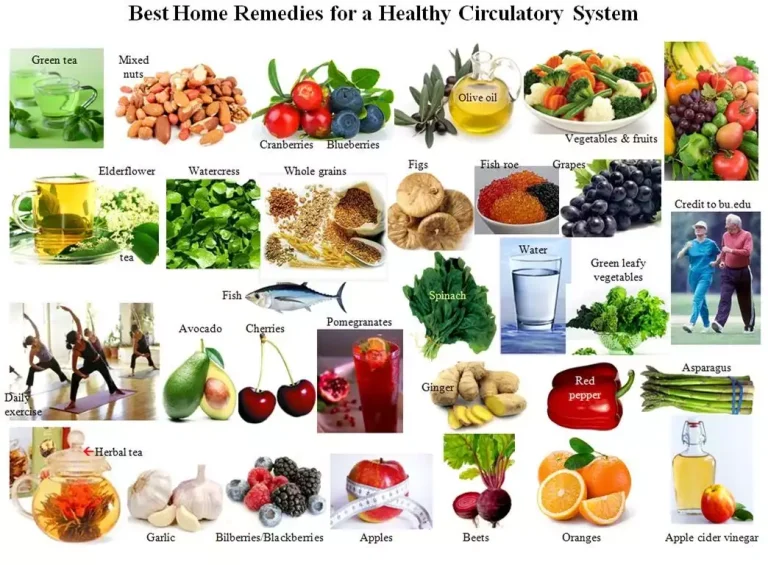Heartburn Remedies
Imagine the uncomfortable burning sensation that often comes after a hearty meal; that’s heartburn for you.
Heartburn affects millions daily, manifesting as a startling chest discomfort one can’t ignore.
Understanding its bases sheds light on why certain foods or habits might summon this unwanted guest.
From grandpa’s baking soda concoction to modern dietary maneuvers, home remedies have long been the quick fix for heartburn’s fiery grip.
Revealing the connection between what we eat, how we live, and the natural remedies that might quell the flames offers insight into a life less interrupted by heartburn.
Diving deeper than simple fixes, this article explores the spectrum of relief, from adjustments in daily routines to the over-the-counter medications at the ready.
We contextualize heartburn within everyday life and special circumstances like pregnancy, ultimately guiding when professional medical advice is warranted.
Welcome to the comprehensive guide for battling heartburn’s heat from the comfort of home.
Table of Contents Heartburn Remedies
Understanding Heartburn
Heartburn is a common ailment that can cause significant discomfort for many individuals.
It manifests as a notable burning sensation in the chest, often after eating, which may worsen when lying down or bending over.
Notably, heartburn is usually a symptom of acid reflux, a condition where stomach acids escape back up into the esophagus—also known as the food pipe—leading to irritation.
This can also result in a sour or bitter taste in the mouth, and in severe cases, can mimic chest pains associated with heart disease which may require medical attention to differentiate.
What is heartburn?
Heartburn is a sensation of burning in the chest that is often accompanied by a sour taste in the mouth or throat.
This discomfort is due to stomach acid traveling up toward the throat (a process known as acid reflux).
When heartburn becomes a frequent occurrence, it might be diagnosed as gastroesophageal reflux disease (GORD or GERD), a more sustained and serious form of reflux.
Those suffering from GERD may experience additional heartburn symptoms such as chronic coughing, a hoarse voice, persistent bad breath, and bloating.
How does heartburn occur?
The lower esophageal sphincter (LES) functions as a valve that regulates the passage between the esophagus and the stomach.
Heartburn occurs when this valve relaxes inappropriately, allowing the stomach contents, which are highly acidic, to travel back up into the esophagus.
This backwash, or acid reflux, irritates the lining of the esophagus, resulting in the characteristic burning sensation.
Several triggers can contribute to the relaxation of the LES, including dietary choices, lifestyle habits, and physical conditions such as obesity or pregnancy.
Why is it important to find quick relief for heartcadeptburn?
Heartburn can strike unexpectedly and cause considerable distress.
Finding quick relief is important to reduce the discomfort and prevent the symptoms from impacting daily activities.
Over-the-counter antacids can neutralize the acid in the esophagus quickly, offering prompt relief.
Meanwhile, home remedies and adjustments in lifestyle, such as diet modification, can also be beneficial in managing symptoms.
For some, simple solutions like raising the head while sleeping or avoiding tight clothing are noteworthy ways to alleviate discomfort.
Moreover, chronic or severe heartburn may lead to complications like esophagitis, therefore addressing symptoms promptly is essential for maintaining long-term esophageal health.
Non-Medical Home Remedies for Heartburn Relief
Heartburn can be a persistent and uncomfortable condition, but there are several non-medical approaches that might provide relief.
One of the most time-honored solutions involves incorporating certain natural ingredients into your regimen.
For instance, licorice is known for its potential to fortify the mucous lining of the esophagus, creating a barrier against the corrosive effects of stomach acid.
Choose deglycyrrhizinated licorice (DGL) in tablet or liquid form to avoid any unwanted side effects of regular licorice.
Historically, herbal remedies have been embraced for gastrointestinal relief.
Catnip, fennel, marshmallow root, and papaya tea are celebrated for their digestive benefits and their soothing impact on heartburn.
Some people also find solace in sipping raw potato juice, although it may sound unconventional.
If opting for a fruity choice, papaya can be enjoyed as a snack or steeped into a comforting tea, both of which are linked to improved digestion and heartburn reduction.
Remember, while these natural remedies are helpful for many, your personal experience may vary, and it’s important to listen to your body’s responses to these treatments.
Adjusting Your Diet
Your diet plays a critical role in managing heartburn.
Adopting a well-rounded diet that includes an array of fruits, vegetables, lean proteins, whole grains, and healthy fats can diminish the severity and frequency of heartburn episodes.
To identify potential trigger foods, keep a detailed food and symptom diary; by spotting patterns, you can make informed decisions about which foods to avoid.
Be wary of foods and beverages like spicy dishes, acidic ingredients, caffeinated drinks, chocolate, and alcohol, as they may provoke heartburn by weakening the lower esophageal sphincter.
Instead of consuming larger meals, opt for several smaller ones throughout the day, which can prevent the stomach from becoming overly full and reduce the risk of acid reflux.
Additionally, maintaining an upright posture while eating and drinking water between meals—rather than during—can further aid in preventing heartburn.
Making Lifestyle Changes
Lifestyle modifications are undeniably useful in countering heartburn.
Eating smaller, more frequent meals can alleviate pressure on the stomach.
Addressing excess weight, embracing relaxation techniques, and steering clear of known triggers are also key to managing symptoms.
Paying attention to the fit of your clothing—opting for loose-fitting attire—coupled with refraining from eating shortly before bedtime can make a substantial difference.
Smoking cessation and moderation in alcohol consumption are crucial.
Raising the head of your bed between 10 to 20 centimeters can prevent stomach acid from ascending during sleep, presenting a simple yet effective method for alleviating reflux symptoms.
Additional habits, such as remaining upright after meals and avoiding a diet rich in fried foods, spicy elements, fatty concoctions, citrus fruits, and carbonated drinks, work together to fend off heartburn.
Trying Natural Remedies
Delving into natural remedies can be a surprising source of relief for heartburn.
The mucous-enhancing properties of licorice, particularly in its deglycyrrhizinated form, are worth considering.
While scientific validation is limited, traditional practices suggest that natural infusions like catnip, fennel, marshmallow root, and papaya tea may be soothing.
Chewing gum is a simple yet effective approach to stimulate saliva, which is alkaline and can neutralize the stomach acid that causes that burning sensation.
Calcium, a key ingredient in many over-the-counter antacids, serves as a natural remedy that can help manage the discomfort of heartburn.
Apple cider vinegar is another home remedy touted for its potential to adjust stomach acidity, although it should be taken with caution as it may have the opposite effect for some individuals.
As with any remedy, it’s best to proceed carefully and consult with a healthcare provider if you have any concerns or if symptoms persist.
Over-the-Counter Medications for Quick Relief
When dealing with the discomfort of heartburn, reaching for over-the-counter (OTC) antacids often provides a swift and effective remedy.
Antacids like Tums® or Maalox® can temporarily neutralize stomach acid, offering quick relief from the burning sensation characteristic of heartburn.
While these medications are convenient for mild and sporadic episodes, it is important to adhere to product label instructions and use them judiciously.
Magnesium-based antacids, while effective, can lead to diarrhea if used excessively or for prolonged periods.
Conversely, calcium- or aluminum-based antacids, when taken in large quantities, may cause constipation.
Remember, OTC medications are intended for symptomatic relief and are not a cure for underlying conditions.
Frequent or severe heartburn that persists despite home treatments could signal gastroesophageal reflux disease (GERD) and should prompt a consultation with a healthcare provider for a medical evaluation and a more comprehensive treatment strategy.
Types of Over-the-Counter Antacids
There is a wide variety of OTC antacids available to relieve heartburn symptoms, each with different active ingredients:
- Calcium Carbonate: Products such as Tums work by neutralizing stomach acid.
- Magnesium Hydroxide: Otherwise known as Milk of Magnesia, this antacid can provide short-term relief but may cause diarrhea if overused.
- Sodium Bicarbonate: Found in Alka-Seltzer, baking soda provides quick relief but is generally not recommended for long-term use due to its sodium content.
- Bismuth Subsalicylate: Pepto-Bismol is another OTC option that can soothe heartburn and help with digestive upset.
While antacids are commonly used and considered safe for occasional heartburn, they do not treat any potential damage to the esophagus caused by acid reflux.
Long-term or excessive use of certain antacids can also result in undesirable side effects, such as digestive imbalance or, in rare cases, kidney complications.
Proton Pump Inhibitors
When heartburn is more persistent and severe, proton pump inhibitors (PPIs) might be recommended.
PPIs include nonprescription options such as lansoprazole (Prevacid), omeprazole (Prilosec OTC), and esomeprazole (Nexium).
These medications work by effectively reducing stomach acid production, making them stronger options than traditional H2 blockers.
PPIs not only help relieve heartburn symptoms but also allow for the healing of damaged esophageal tissue.
Though OTC versions are accessible, it’s important to discuss their use with a healthcare provider, particularly for managing conditions like GERD.
Prescription-strength PPIs are reserved for severe cases of acid reflux and should be taken under medical supervision to monitor for potential side effects and effectiveness.
Quick Relief for Heartburn during Pregnancy
Heartburn is a widespread concern for expectant mothers, with an estimated 17-45% experiencing it at some point during their pregnancy.
This discomfort is primarily due to the hormonal and physical changes the body endures.
Hormones such as progesterone are produced in increased amounts, which relax the lower esophageal sphincter, making it easier for stomach acids to back up.
Additionally, as the baby grows, there’s more pressure in the abdominal area, pushing stomach contents upward, which can exacerbate the frequency and intensity of heartburn, particularly in the later stages of pregnancy.
For those carrying a child, prevention is key.
To minimize heartburn, adopting habits such as eating smaller meals throughout the day, avoiding foods known to trigger acid reflux (like spicy or fatty foods), and not reclining after eating can make a significant difference.
If heartburn strikes, standing or sitting upright helps gravity keep stomach acids where they belong.
As pregnancy advances, understanding these bodily changes and adapting your lifestyle accordingly can help manage heartburn more effectively.
Home Remedies Safe for Pregnant Women
For many pregnant women, heartburn is an unwelcome companion, but numerous at-home strategies can provide relief.
Mild heartburn can often be alleviated with simple dietary and lifestyle changes.
Here are some effective, pregnancy-safe remedies:
- Eating Yogurt or Drinking Milk: The alkaline effect of milk can neutralize excess acid in your stomach.
- Elevating the Head While Sleeping: Using an extra pillow or a wedge can help reduce acid reflux by gravity.
- Avoiding Large and Late Meals: Smaller, more frequent meals can lessen the strain on your digestive tract.
Some OTC medications can also offer comfort.
Antacids containing calcium carbonate or magnesium hydroxide are generally regarded as safe during pregnancy but should be used only after consulting a healthcare provider.
Here’s a breakdown of common safe options:
- Calcium Carbonate (e.g., Tums): Often recommended for its effectiveness and safety.
- Magnesium Hydroxide (e.g., Milk of Magnesia): Offers relief but should be used in moderation to avoid digestive issues.
- Sodium Bicarbonate: Although effective, should be used sparingly due to possible impact on fluid balance.
Always discuss with a healthcare provider before trying a new remedy, to ensure it’s suitable for you and your baby’s wellbeing.
These remedies not only bring relief but also give peace of narind to expectant mothers, knowing they are taking safe and doctor-approved measures.
If heartburn persists after trying home remedies, it’s important to seek medical advice for a tailored treatment approach that will not affect the pregnancy.
When to Seek Medical Attention
Experiencing heartburn occasionally after a heavy meal or a night of indulging in spicy foods might not be a cause for concern.
However, there are specific scenarios when medical attention is warranted to ensure your health isn’t at risk.
If you suspect that certain medications or supplements you’re taking are causing or exacerbating your heartburn, it is vital to contact a healthcare provider.
Self-managing your prescription regimen can be dangerous, and your doctor can suggest alternative treatments that are less likely to cause gastrointestinal discomfort.
Should your heartburn symptoms persist even after you’ve considered medication interactions, regular consultation with a healthcare provider is advised.
Frequent heartburn—defined as experiencing symptoms two or more times per week—might be a sign of a more serious underlying medical condition.
It’s especially imperative to seek professional advice if your heartburn is severe or if it worsens despite your best efforts to manage it with lifestyle changes or over-the-counter remedies.
Identifying Frequent Heartburn
Being able to recognize when your heartburn is more than just an occasional nuisance is key to maintaining good digestive health.
Frequent heartburn is characterized by a burning sensation in the chest or throat that occurs at least twice a week.
It could be an indication of gastroesophageal reflux disease (GERD), a condition that requires medical diagnosis and treatment.
In addition to the frequency of symptoms, there are other alarming signs that should prompt immediate medical attention:
- Severe chest pain or pressure, especially if accompanied by other symptoms such as arm or jaw pain, may signal a heart attack.
- Changes in stool color, especially to a black or tarry appearance, could indicate internal bleeding.
- Vomiting blood or having vomit that looks like coffee grounds.
- Unexpected weight loss without trying.
- Persistent trouble swallowing or a sensation that food is stuck in your throat or chest.
If you identify with any of these symptoms, it is crucial to seek medical care urgently.
While heartburn is common, accompanying symptoms like these could point to a more serious health issue.
Remember, lifestyle adjustments such as dietary changes, avoiding heartburn triggers, reducing stress levels, and quitting tobacco use can all help manage and prevent heartburn.
If, however, your heartburn is chronic and unresponsive to these measures—or occurs more than twice a week—it’s time to visit a gastroenterologist for a thorough evaluation and appropriate treatment plan.







